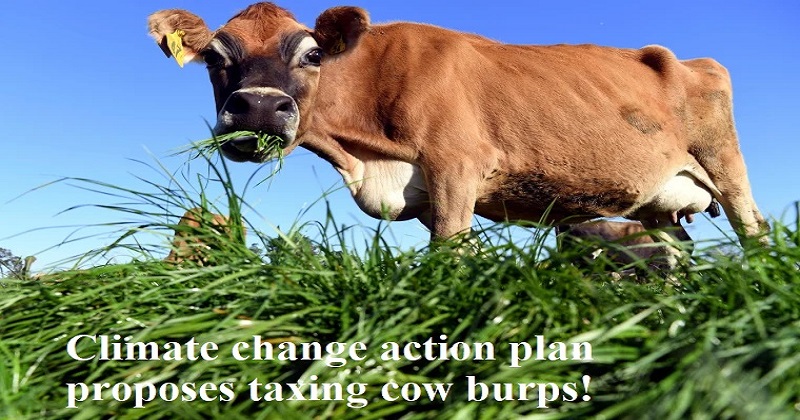
Wellington: As part of a strategy to combat climate change, New Zealand’s government on Tuesday suggested taxing the greenhouse gases produced by farm animals’ poop and burp. The administration said that the farm levy would be a first in the world and that farmers should be able to recoup the expense by raising the price of climate-friendly goods. Farmers, though, swiftly criticised the proposal. The idea would ‘tear the guts out of small-town New Zealand,’ according to Federated Farmers, the industry’s leading lobbying organisation, and replace farmland with trees.
Andrew Hoggard, president of Federated Farmers, stated that farmers have been attempting to cooperate with the government on an emissions reduction strategy for more than two years. The idea, according to Hoggard, ‘was to keep farmers farming’. However, he predicted that farmers will sell their land ‘ so quickly you won’t even hear the dogs barking on the back of the ute (pickup truck) as they drive off’. Due to the plan’s relocation of farming to nations with lower food production efficiency, opposition MPs from the conservative ACT Party said it would actually raise global emissions.
The farming sector is essential to New Zealand’s economy. The main export of the country is dairy, which is also used to create baby formula in China. Only 5 million people live in New Zealand, yet there are 10 million beef and dairy cattle as well as 26 million sheep. Farms account for roughly half of New Zealand’s greenhouse gas emissions, which makes the country distinctive due to its oversized sector. Gases produced by farm animals, including methane from cow burps and nitrous oxide from their urine, contribute to global warming.
The discussion regarding farming’s effects on the environment and the efforts some believe are necessary to mitigate them is a part of a larger global debate that goes beyond New Zealand. Farmers in the Netherlands have driven tractors along busy highways and dropped hay bales on the ground to protest government attempts to reduce harmful pollution emissions.
By 2050, the New Zealand government intends to cut greenhouse gas emissions and achieve carbon neutrality. A commitment to cut farm animal methane emissions by 10% by 2030 and up to 47% by 2050 is a part of that strategy. Farmers will begin paying for emissions under the government’s planned scheme in 2025, though the cost has not yet been decided. Prime Minister Jacinda Ardern said all the money collected from the proposed farm levy would be put back into the industry to fund new technology, research and incentive payments for farmers.
According to Prime Minister Jacinda Ardern, New Zealand farmers may be the first in the world to cut agricultural emissions. Damien O’Connor, New Zealand’s minister of agriculture, described it as an exciting prospect for the country’s farmers. The liberal Labour government’s idea is reminiscent of a previous Labour administration’s 2003 attempt to charge farm animals for their methane emissions, which was also unsuccessful. The notion was fiercely opposed back then by farmers, and political opponents mocked it as a ‘fart tax’.
Since Ardern’s victory in a landslide victory of historic proportions for a second term in 2020, opinion surveys show that Ardern’s Labour Party has lost support and has overtaken the major opposition National Party. The idea will certainly make it more challenging for Ardern to win reelection next year when the country goes to the polls if the administration can’t reach an understanding with farmers, who wield significant political weight in New Zealand.

Post Your Comments